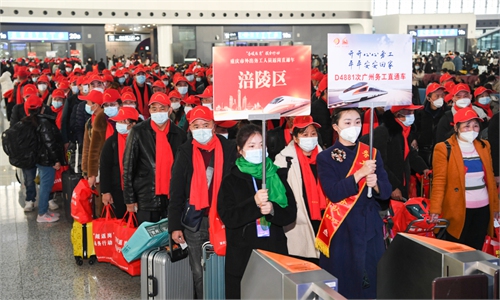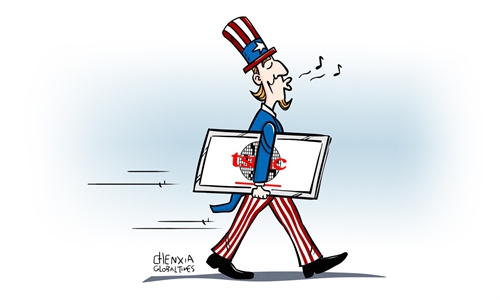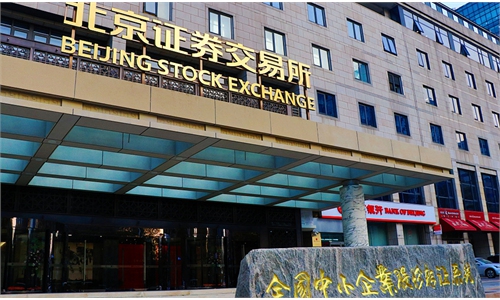Global investors are upbeat on growth of Chinese equities in 2023
Majority of investors upbeat about nation’s economic revival

File photo:VCG
Chinese stocks edged up on Tuesday despite recent fluctuations, as overseas investors continued to pour money into A-share market in a sign of confidence in the nation's broader economic recovery this year, in stark contrast to the negative sentiment hyped by some foreign media.
The Shanghai Composite Index gained 0.49 percent to close at 3,306.52, while the Shenzhen Component Index rose 0.12 percent to 11,968.60. The CSI 300 index, which tracks the largest listed companies in the Shanghai and Shenzhen bourses, rose 0.26 percent to 4,144.35.
While Tuesday's equities gain on the Chinese mainland were minor, they were better than the performances elsewhere in Asia. MSCI's broadest index of Asia-Pacific shares outside Japan fell 0.7 percent to near six-week lows. In Japan, the Nikkei 225 was down 0.21 percent on Tuesday.
"Since the beginning of the Year of the Rabbit, the A-share market has experienced some volatility, and the sharp rebound before the Spring Festival did not continue, as some stocks that saw major gains are correcting. However, judging from various factors, the market's upward trend will not change in the medium term," Yang Delong, former chief economist at Shenzhen-based First Seafront Fund Management Co, said in a note sent to the Global Times on Tuesday.
Chinese stocks trended down starting at the end of January before reversing course on Friday. For example, the CSI 300 index fell as much as 3.97 percent between January 30 and Friday, but it gained 1.38 percent over the past three trading sessions.
Rising foreign capital inflows have sent another positive sign. On Tuesday, net inflows of overseas capital via northbound trading regime between the mainland and Hong Kong bourses reached 1.854 billion yuan ($269.6 million). This came on the heels of a record high monthly net inflow of foreign capital in January, at 141.2 billion yuan, according to Yang.
Despite the positive trends, some foreign media outlets have continued to hype negative sentiment about Chinese equities and the Chinese economy as a whole.
The Chinese unit of the Voice of America (VOA), the propaganda arm of the US government, claimed in an article that expectations for a strong economic rebound in China have "drawn a blank" and foreign investors have reduced their holdings of Chinese assets and adopted a wait-and-see attitude.
The VOA piece drew most of its conclusions from an article in the Japanese media outlet Nikkei Asia, which asserted "Chinese reopening rally stalls as foreign investors cut purchases."
The article focused on recent fluctuations in A-share indexes, including the fall in the CSI 300 earlier this month and the slower growth in foreign capital inflows this month, compared with a record high in January.
However, such reports miss the broader picture for Chinese equities this year, experts noted.
"There is a small group of foreign investors who are negative about Chinese stocks, but upbeat sentiment prevails among the vast majority," Yang said, pointing to continued foreign capital inflows as well as improving forecasts by foreign financial institutions.
On Monday, US-based investment bank Goldman Sachs said it predicts that China stocks may rise 24 percent this year. "We believe the principal theme in the stock market will gradually shift from reopening to recovery," strategists at the bank said in a note.
Rapid growth in foreign capital inflows this year has helped lift Chinese stocks, according to Li Daxiao, chief economist at Shenzhen-based Yingda Securities.
Li told the Global Times that various factors and developments will help drive up Chinese stocks this year, including the recently launched pilot program for privately offered funds in the real estate industry.
The China Securities Regulatory Commission said the pilot would improve the function of the capital market, help the real estate sector better deal with inventories, and support the privately offered funds in serving the real economy, the Xinhua News Agency said.



